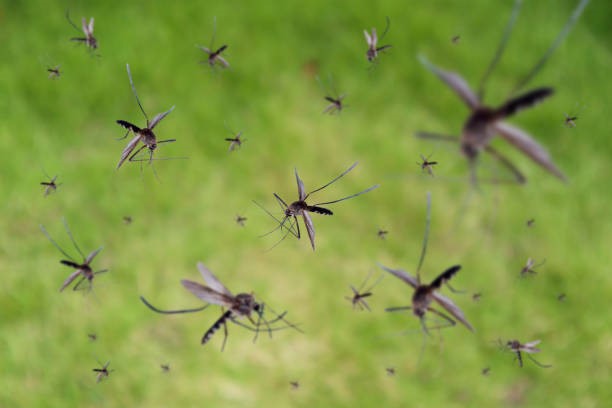Combating Mosquito Menace: Effective Pest Control Strategies for Singaporean Homes

Mosquitoes are more than just a nuisance; they are a significant health risk, especially in tropical climates like Singapore. With the warm, humid weather, these tiny pests thrive, potentially spreading diseases like dengue fever and Zika virus. For homeowners in Singapore, tackling the mosquito menace requires a multi-faceted approach. In this article, we will explore effective pest control strategies to help you create a mosquito-free environment in your home.
Understanding the Mosquito Problem in Singapore
Singapore’s tropical climate provides an ideal breeding ground for mosquitoes. The most common mosquito species in Singapore include the Aedes and Culex mosquitoes. These mosquitoes are not just annoying; they can transmit serious illnesses. Aedes mosquitoes, for instance, are known vectors for dengue fever, a disease that can cause severe flu-like symptoms and, in extreme cases, lead to dengue hemorrhagic fever.
Mosquitoes breed in stagnant water, making any container or pool of water around your home a potential breeding site. This includes bird baths, flower pots, and even the trays under potted plants. Understanding these breeding habits is crucial for implementing effective control measures.
Preventative Measures to Minimize Mosquito Breeding
Eliminating Standing Water
The most effective way to combat mosquitoes is to eliminate their breeding grounds. Mosquitoes lay their eggs in stagnant water, so removing or managing any sources of standing water around your home can significantly reduce their numbers. Regularly check areas where water may accumulate, such as:
- Flower Pots: Ensure that pots have proper drainage or empty any standing water.
- Gutters: Clean gutters regularly to prevent water buildup.
- Air-Conditioning Units: Check for any water collection in and around air-conditioning units and drain it.
Regular Maintenance
Maintaining a clean and dry environment around your home is essential for mosquito control. This involves:
- Cleaning Outdoor Spaces: Regularly clean and remove debris from outdoor areas where water may collect.
- Checking Breeding Sites: Frequently inspect and clear potential breeding sites, including garden ponds and unused containers.
By taking these preventative measures, you reduce the likelihood of mosquitoes finding suitable places to lay their eggs, thereby controlling their population around your home.
Indoor Strategies to Combat Mosquitoes
Using Mosquito Nets and Screens
To keep mosquitoes out of your home, installing mosquito nets and screens on windows and doors is a highly effective strategy. These barriers prevent mosquitoes from entering while allowing fresh air to circulate. Ensure that screens are well-fitted and free from holes to maximize their effectiveness.
Repellents and Insecticides
Mosquito repellents and insecticides play a crucial role in indoor mosquito control. There are various types available, including:
- Repellents: These come in the form of sprays, lotions, and coils. Choose repellents with DEET, picaridin, or oil of lemon eucalyptus, as these are effective against mosquitoes.
- Insecticides: Indoor insecticides can help eliminate mosquitoes inside your home. Ensure that you follow the instructions carefully and use these products in well-ventilated areas.
When using these products, always prioritize safety and avoid overuse. Opt for natural or less toxic options when possible, especially if you have young children or pets.
Indoor Plants
Certain plants are known for their mosquito-repellent properties. Incorporating these plants into your indoor decor can help keep mosquitoes at bay. Some effective mosquito-repellent plants include:
- Citronella: Known for its strong scent that mosquitoes dislike.
- Lavender: The scent of lavender is soothing to humans but repellent to mosquitoes.
Growing these plants indoors not only enhances your home’s aesthetics but also contributes to a mosquito-free environment.
Outdoor Strategies for Mosquito Control
Landscaping Techniques
Landscaping plays a significant role in mosquito control. By making strategic choices in your garden, you can reduce the attractiveness of your outdoor space to mosquitoes. Consider:
- Planting Mosquito-Repellent Plants: Use plants like lemongrass, marigolds, and basil around your garden to naturally repel mosquitoes.
- Maintaining Proper Drainage: Ensure that your garden has proper drainage to prevent water from accumulating and creating breeding sites.
Effective landscaping can help minimize mosquito attraction and create a more enjoyable outdoor space.
Professional Pest Control Services
While DIY methods are effective, there are times when professional pest control services may be necessary. If you find that mosquitoes persist despite your efforts, consider:
- Consulting with Experts: Professional pest control services can assess your home and recommend targeted treatments to address mosquito issues.
- Exploring Treatment Options: Professionals offer various treatments, including fogging and larviciding, which can significantly reduce mosquito populations.
Hiring a pest control service ensures that you receive expert advice and solutions tailored to your specific situation.
Community and Environmental Efforts
Community Initiatives
Mosquito control is not just an individual effort; community involvement is crucial. Participate in local initiatives aimed at reducing mosquito populations, such as:
- Public Clean-Up Campaigns: Join or support community clean-up efforts to eliminate potential mosquito breeding sites in public areas.
- Awareness Programs: Engage in or promote awareness programs that educate the public about mosquito prevention and control.
Government Programs and Support
Singapore’s government has implemented various programs to combat mosquito-borne diseases. These include:
- Regular Inspections: The National Environment Agency (NEA) conducts inspections to identify and address mosquito breeding sites.
- Public Education: Government initiatives to educate the public about mosquito prevention and control measures.
Staying informed about government programs and actively participating in these initiatives can enhance community-wide efforts to control mosquitoes.
Conclusion
Combating the mosquito menace requires a comprehensive approach that combines preventative measures, indoor and outdoor strategies, and community involvement. By eliminating standing water, using repellents, and maintaining your home and garden, you can significantly reduce mosquito populations and protect your family from mosquito-borne diseases.
Implement these strategies to create a more comfortable and mosquito-free environment in your Singaporean home. For a more targeted approach and expert solutions, don’t hesitate to reach out to Conquer Pest Singapore. Our team of professionals is equipped with the latest tools and techniques to ensure your home remains free from mosquitoes. Contact us today for a consultation and take the first step towards a pest-free home!


